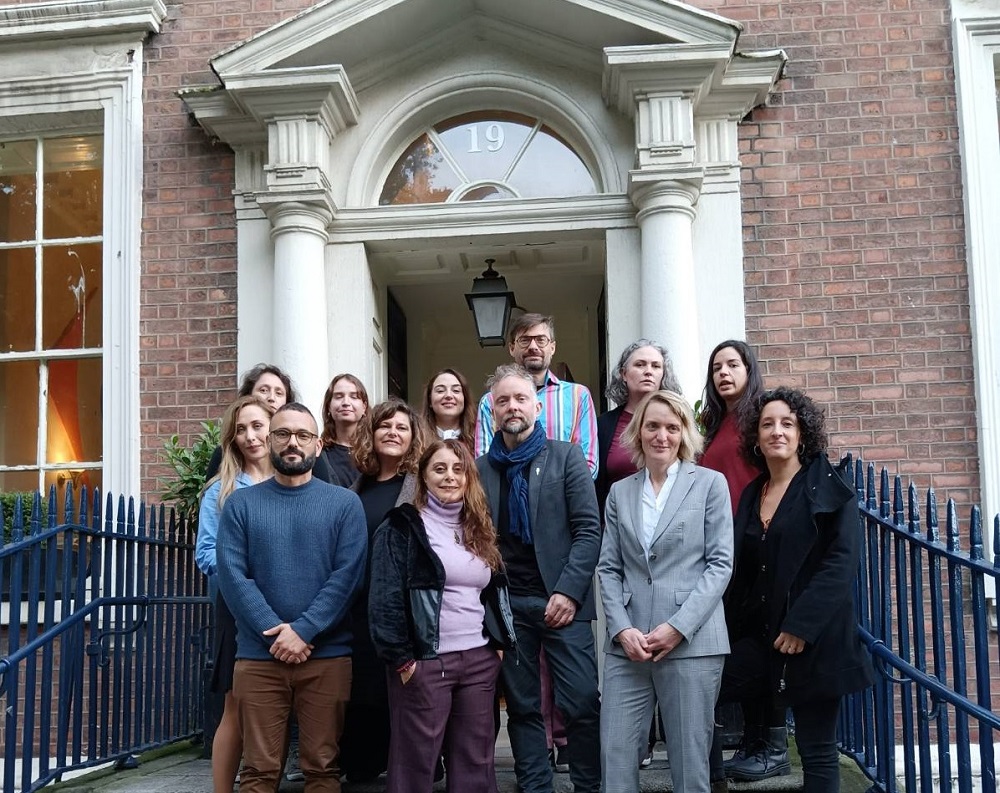UPF is participating in a Europe-wide study on “anti-gender” politics
UPF is participating in a Europe-wide study on “anti-gender” politics
The RESIST project, which will be carried out by a consortium of eleven universities and research centres, coordinated by University College Dublin, will investigate so-called “anti-gender” politics throughout the continent. Maria Rodó-Zárate, a professor at the Department of Political and Social Sciences, is the main researcher for the project at UPF.

The city of Dublin (Ireland) recently hosted the launch of a project examining the development of so-called “anti-gender” politics throughout Europe, with the participation of universities and research centres from seven countries, including Pompeu Fabra University.
The RESIST (Fostering Queer Feminist Intersectional Resistances against Transnational Anti-Gender Politics) project will examine policies that seek to limit freedoms, trans* inclusion, multiculturalism, and gender and sexual equality. It will run four years and is backed by over €4 million of funding, including support from the European Union (under Horizon Europe), and UK and Swiss governments.
Maria Rodó-Zárate: “RESIST will map how ‘anti-gender’ politics is expressed, listen to those affected by it, collaborate with organisations countering ‘anti-gender’ politics, generate key understandings and tools, and share these with diverse stakeholders and social groups"
Professor Kath Browne, project leader at University College Dublin, the coordinating centre, said: “This is a big moment for our consortium’s effort to contest these so-called ‘anti-gender’ politics. The project will explore the consequences these political developments have on lived experiences, freedom of speech, academic freedom, reproductive justice, and gender and sexual diversity in Europe”.
RESIST will work with grassroots collectives and organizations in eight countries: Ireland, Spain, Belarus, France, Switzerland, Poland, Germany and Greece, and will also involve people living in exile across Europe due to ‘anti-gender’ politics.
“‘Anti-gender’ movements span the political spectrum and are apparent not only in illiberal and authoritarian regimes but also in democracies considered liberal and inclusive. It is therefore important that we understand how these manifest—and also how they are resisted”, Kath Browne asserts.
What role will UPF be playing in the research project?
Maria Rodó-Zárate, co-investigator responsible for a work package, is linked to UPF’s Department of Political and Social Sciences. Her research will focus on studying the effects of these ‘anti-gender’ politics and discourse on the lives of individuals and collectives, based on interviews, surveys and focus groups.
“RESIST will map how ‘anti-gender’ politics is expressed, listen to those affected by it, collaborate with organisations countering ‘anti-gender’ politics, generate key understandings and tools, and share these with diverse stakeholders and social groups", Maria Rodó-Zárate said.
The project is coordinated by University College Dublin (Ireland), in collaboration with Pompeu Fabra University, Edinburgh Napier University (Scotland, UK), European University Viadrina (Germany), Université Paris 1 Panthéon-Sorbonne (France), Lucerne University of Applied Sciences and Arts, Université de Lausanne, Université de Fribourg (Switzerland), Maynooth University (Ireland), and the Feminist Autonomous Centre for Research (Greece).
